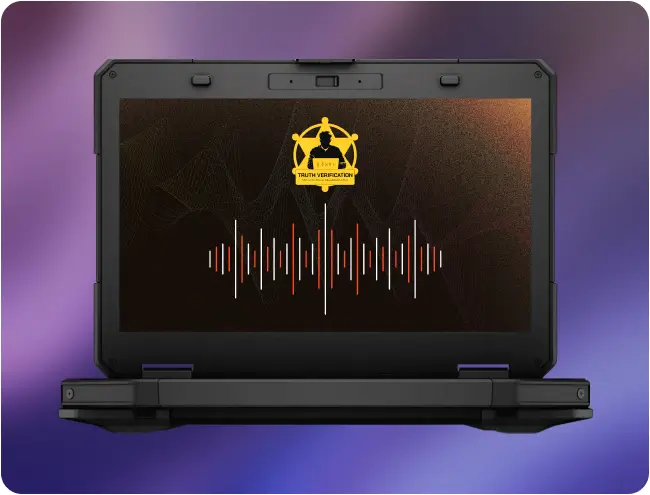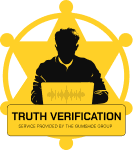Case Usage
For Truth Verification Test
Truth-Verification tests, commonly known as "lie detector" tests, are used in various contexts, primarily to assess the truthfulness of individuals in situations where their statements are critical. Here are some common use cases for a lie detector
REQUEST A QUOTE
Case Usage
1. Criminal Investigations
Scenario
When law enforcement suspects a person’s involvement in a crime, they may request or order a truth-verification examination to evaluate the truthfulness of the suspect's statements.
Description
For instance, if a person is a primary suspect in a theft case, but there’s limited evidence, a polygraph might help investigators assess the suspect’s truthfulness about their whereabouts or actions during the crime. However, truth-verification results are not typically admissible in court as evidence and are mainly used as an investigative tool.
2. Pre-Employment Screening for Security-Critical
Scenario
For positions involving high levels of security, like those in law enforcement (e.g., Police, Sheriff, Probation, Corrections, and other Public Safety positions), truth-verification may be used to screen potential hires.
Description
Applicants may be asked questions about their personal history, including criminal activity, drug use, or other behaviors that could pose security risks. The goal is to verify the honesty of the candidates and their suitability for a sensitive role. However, the use of polygraphs in pre-employment varies based on jurisdiction and organizational policies.
3. Internal Investigations in Corporate Settings
Scenario
A company experiences a significant incident, such as embezzlement or a data leak, and suspects internal involvement.
Description
In such cases, truth-verification might be requested from employees under investigation. It can assist in narrowing down suspects or verifying statements from individuals. For instance, if confidential data were leaked, IT personnel or others with privileged access might undergo lie detector tests to assess their involvement.
4. Sex Offender Monitoring and Compliance
Scenario
Many jurisdictions require convicted sex offenders on probation or parole to undergo truth-verification tests periodically as part of compliance monitoring.
Description
These tests aim to verify that offenders are abiding by court-ordered restrictions, such as staying away from certain areas or avoiding contact with minors. Questions might focus on recent behavior, intentions, or compliance with legal restrictions. This helps probation officers assess risks and enforce compliance more effectively.
5. Insurance Claims Investigations
Scenario
A truth-verification test might be administered to claimants who agree to it in cases of potentially fraudulent insurance claims.
Description
Insurance companies may request a lie detector to assess the legitimacy of large claims, especially if there are suspicious circumstances. For example, if someone claims a valuable item was stolen and there’s no corroborative evidence, a lie detector test could indicate the truthfulness of the claimant's account. This can guide the insurance company's decision-making, although truth-verification test are generally voluntary in such settings.
6. Family Law Disputes and Custody Battles
Scenario
Polygraphs can sometimes be part of disputes in family court, though they are less common in this context.
Description
For example, in high-stakes custody battles, allegations of abuse or misconduct may arise. A polygraph could be used (if both parties agree) to assess one party’s claims of harm or misconduct. However, polygraphs are rarely a definitive factor and are not usually admissible as evidence in family courts.
7. Monitoring High-Profile Individuals Surveillance
Scenario
For high-profile individuals under strict monitoring due to parole, probation, or national security reasons, polygraphs can be used periodically.
Description
High-profile individuals like former spies, individuals involved in espionage, or those under tight probation may be tested to ensure compliance with agreements, such as avoiding certain contacts or disclosing information. This helps security agencies ensure compliance without continuous physical surveillance.
8. Testing Witness Credibility in High-Stakes Cases
Scenario
In high-profile or complex cases, a witness might volunteer for a truth-verification test to establish their credibility
Description
Although lie detectors are not admissible as evidence in most courts, witnesses sometimes take them to support their credibility, especially if their testimony is crucial. This can influence prosecutors' or investigators’ trust in the witness, though it is more of a supporting measure than a definitive one.
